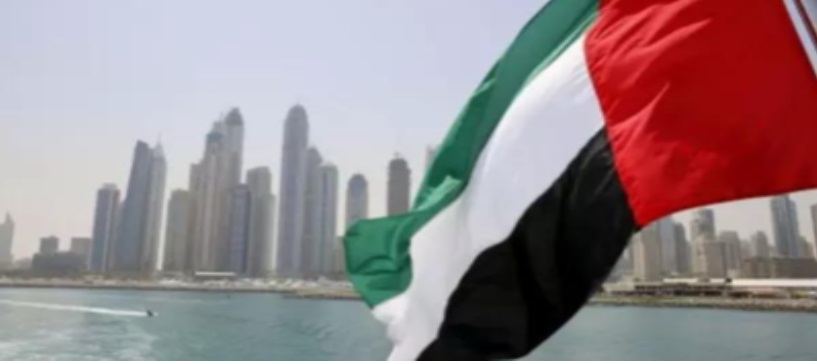
In a historic achievement, the United Arab Emirates (UAE) has set a new record in its economic history by surpassing Dh3.5 trillion in non-oil foreign trade in 2023. Despite the global downturn in international trade movements, reports from the United Nations Conference on Trade and Development confirm the UAE’s remarkable resilience and robust performance in the face of challenging global economic conditions.
Leadership Perspectives: Sheikh Mohammed bin Rashid Highlights Unprecedented Growth
Sheikh Mohammed bin Rashid, Vice President and Prime Minister of the UAE and Ruler of Dubai, attributes this unprecedented success to the leadership of President Sheikh Mohamed bin Zayed Al Nahyan. Acknowledging the achievement, Sheikh Mohammed emphasized how the UAE, under this leadership, has reached “unprecedented heights in its non-oil foreign trade figures.”
Record-Breaking Agreements and Cooperation
Sheikh Mohammed pointed to the foresight demonstrated at the beginning of 2023, predicting a record economic year. The UAE solidified its global position through comprehensive partnership agreements, resulting in a notable 26% increase in foreign trade with its top ten trading partners. Noteworthy growth percentages include over 103% with Turkey, 47% with Hong Kong-China, and 20% with the USA.
“The UAE today is at the heart of the international trade movement. Our economic commitments to everyone continue,” Sheikh Mohammed affirmed.
Top Trading Partners and Global Connectivity
China maintained its position as the UAE’s leading trading partner, followed by India, the US, Saudi Arabia, and Turkey. The top ten also included Iraq, Switzerland, Hong Kong, Japan, and the Sultanate of Oman. This global connectivity underscores the UAE’s pivotal role in facilitating international trade and fostering mutually beneficial relationships.
Export Growth: A Testament to Economic Vibrancy
The record growth in non-oil foreign trade coincides with a continuous increase in the value of non-oil exports, exceeding Dh441 billion in 2023. This marks a significant 16.7% growth compared to 2022. The exports in 2023 more than doubled those in 2018 and are on the verge of achieving double the exports of 2019. This outstanding performance demonstrates the UAE’s resilience and adaptability to dynamic global trade conditions.
Contribution of Non-Oil Exports to Overall Trade
The contribution of non-oil exports of goods to the country’s overall foreign trade increased to 17.1%, surpassing 14.1% in 2019 and 13% in 2018. This highlights the growing significance of non-oil sectors in the UAE’s economic landscape.
Re-exports and Import Dynamics
Accompanying the surge in total foreign trade and non-oil exports is a similar increase in re-exports, reaching Dh690 billion – a growth of 6.9% compared to 2022 and 27.7% compared to 2021. While imports surged to Dh1.4 trillion, growing by 14.2% compared to 2022, the top 10 imported commodities achieved an impressive growth of 20.9% in 2023.
Key imported commodities include gold, telephones, petroleum oils, cars, and diamonds.
Services Trade Surplus and Sectoral Contributions
In 2023, the UAE’s services trade surplus grew to Dh207 billion, indicating a significant increase in its share of global service exports. Key sectors such as travel and tourism, information and communication technology (ICT), professional and financial services, education, medical tourism, Islamic financial services, the creative economy, and logistics contributed substantially to this growth.
Strategic Growth in Non-Oil Trade with Top Partners
The UAE’s non-oil trade with its top 10 partners experienced significant growth in 2023. Notably, trade with Turkey, contributing 5.1% to the total, surged by an impressive 103.7%. Other substantial increases were observed with Hong Kong-China (47.9%), the USA (20.1%), and China (4.2%). India, having a comprehensive economic agreement since May 2022, witnessed a growth of 3.9%, accounting for over 7.6% of the total trade.
Exports to Top Partners and Prominent Goods
Non-oil exports to the top 10 partners grew by 26.9%, with Turkey accounting for nearly 60% of the UAE’s exports in the last five months of 2023. India emerged as the second-largest recipient of UAE exports. Gold, aluminium, oils, cigarettes, jewellery, copper wire, and ethylene polymers were among the country’s most important exports of goods.
Q4 2023: Record Non-Oil Foreign Trade Performance
In Q4 2023, the UAE’s non-oil foreign trade of goods reached a record Dh710 billion, marking a 16.3% year-on-year (YoY) and 12.4% quarter-on-quarter (QoQ) growth. Non-oil exports of goods amounted to Dh132.2 billion, reflecting a substantial 39.3% YoY and 26.9% QoQ increase. This marked the first time non-oil trade exceeded Dh700 billion in a quarter, showcasing the sustained momentum of the UAE’s economic engine.
Conclusion: A Landmark in Economic Achievements
The UAE’s achievement of surpassing Dh3.5 trillion in non-oil foreign trade in 2023 is nothing short of a landmark in the country’s economic history. This exceptional resilience and growth, amidst global economic challenges, affirm the UAE’s position as a global economic powerhouse and a beacon of prosperity. As the nation continues its trajectory of growth, the strategic vision and economic leadership underpinning this success herald a promising future for the UAE on the world stage.
Also Read
International Monetary Fund Commends UAE’s Economic Strength and Resilience
UAE Authorities Confiscate 11 Vehicles for Reckless Driving Amidst Rain in Sharjah





